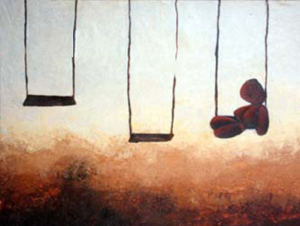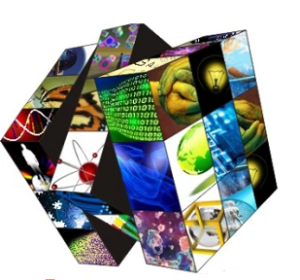
Arquivo para July, 2020
Innocence, naivety and ignorance
In many situations we stumble on these three concepts as synonyms or close ones, they are not, a child is innocence and does not know many subjects, but he is not ignorant, for his naivete he must be protected both by his parents and by any person of good character.
they are not, a child is innocence and does not know many subjects, but he is not ignorant, for his naivete he must be protected both by his parents and by any person of good character.
An adult can also be innocent in a certain situation because he was not part of or did not know a serious situation, he is not ignorant, but innocent even though some harm may have occurred due to his ingenuity in not realizing the seriousness or the consequences of an act.
Ignorance is militant, that is, even seeing and understanding the seriousness of a given situation, a conscious voluntary action commits or allows a serious act to be carried out, and some or many people or even serious situations can occur.
The pandemic exposed these three realities and one cannot fail to notice a disease with the severity of taking lives and whose defense is complex due to the lack of knowledge about the action and control of the coronavirus implies making decisions in defense of life that mitigate the number of deaths.
Just as it exposes the naivety of many people who do not take care of hygiene and prevention to minimize the contagion, exposing innocent people, but it is ignorance that worries most and can cause even more serious situations if it is not possible to stop neglect. Ignorance was used in history to manipulate innocent populations and often managed to lead many naive people to catastrophic situations, striking innocents and often leading to death and despair, this happened in wars and pandemics, the Spanish flu in the 1918s and 1919 killed 50 million people, an absurd number for the population at the time.
The biblical revelation in which the apostle Matthew (Mt 11.25) states that it was his father’s pleasure to reveal himself to the little ones and to hide the divine truths from the “wise and understanding”, must be understood in the context of belief in God.
God eternal knowledge and not about knowledge and temporal truths, because the following text is very clear (Mt 11: 26-27): “Yes, Father, because that was your pleasure. Verything was delivered to me by my Father, and no one knows the Son, except the Father, and no one knows the Father, except the Son and the one to whom the Son wants to reveal him.
Using this passage to justify or defend ignorance is bad faith, in both senses, in the religious and in the moral sense.
It is not a cIt is not a crisis of thought alone
The crisis may seem like something too intellectual, thinking would be far from the concrete reality of science, and thus from ordinary life, but its extension reaches the everyday science from statistics to medicine, from bibliometrics to biology and this can affect confidence in science and in In the spiritual field there is an immense openness to quackery and the manipulation of good faith.
the concrete reality of science, and thus from ordinary life, but its extension reaches the everyday science from statistics to medicine, from bibliometrics to biology and this can affect confidence in science and in In the spiritual field there is an immense openness to quackery and the manipulation of good faith.
This criticism questioned, for example, the fact-value dichotomy, emphasizing the social construction of facts, and can be traced back to the works of philosophers like Friedrich Nietzsche and Edmund Husserl, with their rejection of science as a metaphysical substitute.
Stephen Toulmin was very articulate in his criticism of the Cartesian idea of rationality (1958), while the essence of the scientific method has been the subject of writings (and disputes) by authors such as Karl Popper, Thomas Kuhn, Paul Feyerabend and Imre Lakatos.
The essence of the scientific method has been the subject of writings (and disputes) by authors such as Karl Popper, Thomas Kuhn, Paul Feyerabend and Imre Lakatos, the echo of these disputes reaching the world of physics as the debate about string theories and their physical reality.
An interesting literature on the current crisis was the work of Derek of Solla Price “Little Science, Big Science” of 1963, he states that there is a point of saturation and senility, which was the result of the exponential growth he experienced in the 20th century.
Another more interesting work is the book by Jerome Ravetz “Scientific knowledge and its social problems”, which offers a critique of the myths of objectivity (it is our main object of this blog), and which asks about the solution of practical problems, that is , social.
In a recent work he recently argued Ravetz (2016) that “Applying a” scientific “methodology to science governance tasks leads directly to corruption, as any system can be at stake”, in another article, Ravetz (2011) defines the issue in terms of the “maturation of the structural contradictions of modern European society”.
The pandemic showed the inefficiency of both the medical field where “specialists” defend medicines that have not been proven effective and generate collateral problems, such as hydroxychloroquine and others (according to the magazine Veja (in section Saude), 69 medicines are tested: 18 are anticancer, 14 immunosuppressants, 13 antihypertensive drugs, 12 antiparasitic drugs and 12 anti-inflammatory drugs, and statistical treatment also hide the real results, as are the analyzes of the evolution of the pandemic in Brazil
References:
De Solla Price, D. J. (1963). Little science big science. Columbia University Press.
Ravetz, J. R. (1971). Scientific knowledge and its social problems. Oxford University Press.
Ravetz, J. (2008). Faith and reason in the mathematics of the credit crunch. The Oxford Magazine. Eight Week, Michaelmas term 14–16, Available online at http://www. pantaneto.co.uk/issue35/ravetz.htm.
Ravetz, J. R. (2011). Postnormal Science and the maturing of the structural contradictions of modern European science. Futures, 43, 142–148.
Ravetz, J. R. (2016). How should we treat science’s growing pains? The Guardian 8 June 2016.
Toulmin, S. E. (1958) The Uses of Argument, UK: Cambridge University Press.
The development of science and the epistemic crisis
Several ideas and news spread among the peoples and become dogmas  and legends since the origin of humanity, however it was the organization of knowledge that organized the episteme, the doxa its a single opinion.
and legends since the origin of humanity, however it was the organization of knowledge that organized the episteme, the doxa its a single opinion.
The first great scientific question raised by Boethius in the seventh century, was whether or not there are universal or just private categories, this question gave rise to a dispute between nominalists like Duns Scotto and William Ockham who argued that “names” were universal, and realistic. like Thomas Aquinas, who said the real be.
Roger Bacon (1220-1292) defended experimentation as a source of knowledge, and together with Duns Scotto and William de Ockham they create the empiricist basis of thought, and so knowledge does not depend only on faith, but also our senses.
With his philosophical operation called “methodical doubt”, René Descartes ended up instituting a philosophical paradigm that was identified as conceptual pragmatism, and John Locke, representative of the empiricist current, and René Descartes, founder of the Cartesian method, converged in their theories when they stated that the valid knowledge comes from experience and the senses, as they are innate to the soul.
Kant’s idealism will create 12 categories separated into 4 groups, that of Quantity (Unit, Plurality and wholeness), Quality (Reality, Denial and Limitation), the relationship (Substance, Causality and Community), Modality (Possibility, Existence and Necessity), and in them the phenomena fill the empty forms.
Thus, the phenomena can only be considered within the categories, differently from the phenomenology that directs consciousness to the thing itself, that is, it returns to the beings, and this will open a new possibility for metaphysics.
Despite strong signs of a crisis in thought, mathematics changes with the emergence of non-Euclidean geometries, the fourth dimension, physics with the uncertainty principle where the theory of relativity and quantum physics came from, the logical paradoxes presented in Vienna circle and mainly a crisis in humanist thought, showed an early 20th century in crisis, but two wars and the cold war were not avoided.
The fall of the Berlin wall, an apparent end to the ideological struggle, has given rise to new crises now in the world of culture, the war in Iran, Afghanistan and the permanent one in many Arab countries have now shown an East vs. West tension.
The pandemic should solidarize the peoples, in fact it created a more serious ideological polarization, the danger of totalitarian regimes emerging with greater force, it is necessary to have hope and fight for a more solidary world and a humanism worthy of the name

